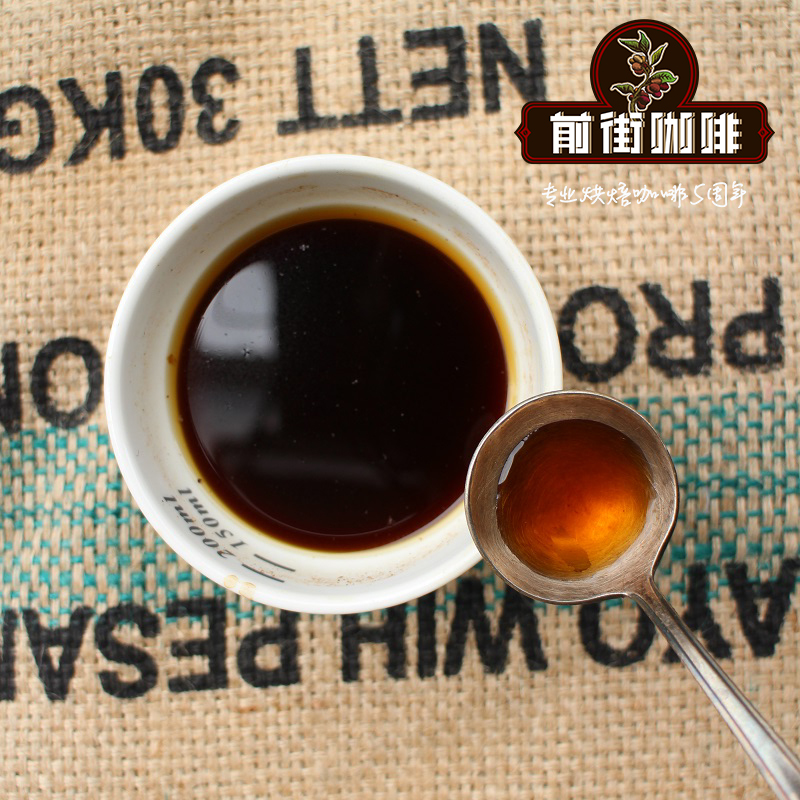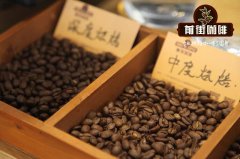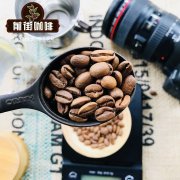Organic coffee is expensive?_Organic coffee beans brand rankings_Organic coffee beans how to drink

Professional coffee knowledge exchange More coffee bean information Please pay attention to coffee workshop (Weixin Official Accounts cafe_style)
Organic coffee beans are coffee beans produced by organic farming. To understand organic coffee, you must first understand organic farming, a concept that originated in 1924.
In 1924, a group of farmers concerned about the future of agriculture turned to Dr. Rudolf Steiner, then renowned in Germany;Steiner subsequently delivered a series of lectures on ecological and sustainable approaches to agriculture, advocating the use of chemical fertilizers and pesticides to increase soil fertility and produce healthy products. His main idea was
Crops should be cultivated in a way that does not pollute the environment, does not destroy the ecology, and provides products that are healthy and safe for consumers.
According to this concept, all chemicals used in organic farming, including fertilizers and pesticides, should come from nature and not from laboratories or factories. Nitrates from natural mines, for example, are organic as nitrogen fertilizer, while nitrates from chemical plants are not.
However, in 1924, the trend of agricultural development in the world was to pursue industrialization and commercialization, and to give priority to increasing production, so the concept of organic farming was not taken seriously. It wasn't until 1940, thanks to the efforts of the American playwright and publisher J. I.Rodale, that it became known to the world, but it was still a long way from "universal recognition," not least because it was in 1940 that the Green Revolution set off a wave of farmers expanding production by using fertilizers and pesticides, and the emergence of "miracle wheat" and "miracle rice" pushed the wave to its peak. By the 1970s, the wave finally caught up with coffee.
Xu Many people drink coffee, asking for the sobriety brought by caffeine, or a sensory satisfaction, but while meeting their own needs, have you ever thought that this cup of coffee is a mouthful of pesticide or the blood and tears of small farmers?
The global trade volume of coffee, second only to oil, is mostly produced in a large and single industrial way, so that coffee satisfies many people's taste buds, but it also brings hidden worries about pesticide residues and environmental hazards.
There are reports that pesticide residues disappear when coffee is roasted, but there are also studies that show that pesticide residues can still be detected in roasted coffee beans. However, what really needs to be known is the pesticides used in many coffee-producing countries, which may be banned in advanced European and American countries; many farmers know only a little about pesticides and use pesticide "cocktail" to strongly kill insects. This not only endangers farmers 'health, but also causes environmental hazards such as soil erosion, soil erosion and water pollution.
Disposal of obsolete pesticides is also a thorny issue. According to the International Finance Corporation (IFC), there are 50,000 metric tons of obsolete pesticides in Africa alone, and the storage environment is harsh.
Farmers use pesticides only to increase sales. According to the survey, a hectare of land grown conventionally produces 485 pounds of coffee beans, but organically produces only 285 pounds.
However, the market demand for organic coffee beans is large, but after the monopoly and suppression of the big road, the purchase price is getting lower and lower. Farmers work more and can't get more. They would rather go back to the old way and continue to use pesticides to stimulate production. Climate variability caused by global warming has led to unusual pest outbreaks and forced farmers to use pesticides in order to survive without increasing prices. But they often do not have the correct knowledge of medication, or wear masks and gloves to protect themselves.
Recent studies have found that many farmers suffer dizziness, headaches, breathing difficulties or lung pain due to prolonged exposure to the drug, which is sadly a phenomenon in many coffee-producing countries. More sadly, international coffee futures prices have long been controlled by multinational corporations. Under the thinking of pursuing the "sustainable" growth of enterprises, the pursuit of profits comes from exploiting producers, which exacerbates the poverty problem in coffee-producing countries and needs to be changed urgently.
Therefore, in order to make better choices for themselves and for the earth, so that people who grow can also get reasonable rewards, the fair trade movement initiated by consumers consciously came into being. After 60 years of development and baptism, a certification mechanism for transparent production chain has gradually been formed to ensure the sustainable development of production in society, economy, environment and ecology.
Fair Trade International Certification (FLO Certi) Cation) standards are set by Fairtrade International and assigned to FLOCERT, an independent third-party organization, to perform audit and monitoring functions. The core spirit of certification is to nurture vulnerable and poor producers towards economic independence, to reverse unfair power structures in trade, to change business models that continue to exploit land and producers, and to improve the structural problems behind poverty.
Qianjie Coffee: Guangzhou's baking shop, small store but a variety of beans, can find a variety of famous beans, but also provide online store services. https://shop104210103.taobao.com
Important Notice :
前街咖啡 FrontStreet Coffee has moved to new addredd:
FrontStreet Coffee Address: 315,Donghua East Road,GuangZhou
Tel:020 38364473
- Prev

Which brand of organic coffee is good? can I eat organic coffee beans directly? organic coffee bean price list
Professional coffee knowledge exchange more coffee bean information Please pay attention to coffee workshop (Wechat official account cafe_style) Organic coffee bean certification organic coffee bean is not only a healthy choice, but also a balance of ecological protection and stable natural environment. It is inspected by professional institutions from soil, coffee trees, roasting to transportation and the environment one by one every year, and all the conditions meet the standards.
- Next

What is Organic Coffee_Introduction to Organic Coffee Bean Types_Price Analysis of Organic Coffee Bean
Professional coffee knowledge exchange More coffee bean information Please pay attention to coffee workshop (Weixin Official Accounts cafe_style) Organic coffee does not use any pesticides and other chemicals to treat pests or cultivation problems, but uses natural methods, such as natural composting, fencing, pruning and other methods to maintain the growth of coffee trees. In terms of pest control, I
Related
- Guji coffee producing area of Guji, Ethiopia: Humbela, Shakiso, Wulaga
- What is the most expensive variety of Qiloso in BOP multi-variety group?
- How to store the coffee beans bought home?
- Why are Yemeni coffee beans so rare now?
- Ethiopian Sidamo all Red Fruit Sun Sun Santa Vini Coffee beans
- SOE is mostly sour? What does it mean? Is it a single bean? what's the difference between it and Italian blending?
- Is Italian coffee beans suitable for making hand-brewed coffee?
- How to choose coffee beans when making cold coffee? What kind of coffee beans are suitable for making cold coffee?
- Just entered the pit to make coffee, what kind of coffee beans should be chosen?
- Can only Japan buy real Blue Mountain Coffee? What are authentic Jamaican Blue Mountain coffee beans?

